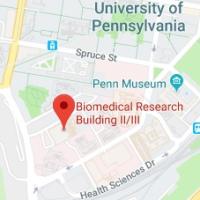Testicular Germ Cell Tumor
We identified the first (and only) validated candidate region associated with increased risk of TGCT in 2005 and went on to co-publish one of initial genome wide association studies (GWAS) study in TGCT (Nat Genet, 2009). GWAS in TGCT are the most successful in cancer, in terms of identifying loci with high effect sizes containing biologically plausible genes, which have implicated differences in male germ cell maturation and differentiation as being critical to disease susceptibility. We have subsequently published several other studies identifying loci associated with risk of TGCT. I currently lead the Testicular Cancer Association Consortium (TECAC), which is an international consortium of researchers (Nat Genet, 2009; Hum Mol Genet, 2011; Nat Genet, 2013; Hum Mol Genet, 2013; Hum Mol Genet, 2014; Nat Genet, 2017). These studies have furthered our understanding of the biology of TGCT as being a disease of male germ cell development, led to important genetic insights into the epidemiology of TGCT and identified the most significant loci (highest odds ratios) of any cancer GWAS. We also have generated whole exome data on several 100 patients with TGCT (JAMA Oncol, 2019), and plan more extensive sequencing, and have done ATAC-seq and Spatial-Seq (chromatin conformation capture) on multiple TGCT cell lines for post-GWA functional studies. We also heavily participated in the TCGA TGCT effort and have an ongoing collaborative project with multiple participants supported by Movember to evaluate resistance to cisplantin in patients with TGCT.
Example Projects:
- Identification of causal variants (SNPs) in regions associated with TGCT through in silico analysis, and subsequent functional/experimental evaluation
- HiChIP (chromosome conformation capture using few input cells) in fetal and adult germ cells to define target-enhancer connectome and identify causal variants for TGCT
- Whole genome sequencing of high-risk individuals with TGCT (bilateral, family history, non-white)
- Follow-up from whole exome sequencing in case-control study to validate rare variants/genes in association with TGCT
- Initiation and development of studies in non-whites with TGCT and women with ovarian germ tumors (also using social media)

